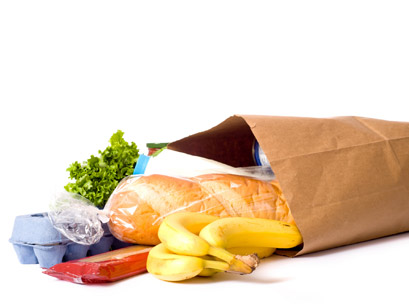 The global food industry is on the eve of an online retailing revolution that will lead to fundamental changes for players along the supply chain, from processors through to retailer, according to a new report by Rabobank.
The global food industry is on the eve of an online retailing revolution that will lead to fundamental changes for players along the supply chain, from processors through to retailer, according to a new report by Rabobank.
For brands and private label food processors of every size it means exploiting opportunities and tackling the challenges of securing on screen visibility.
In the “Food Processors Challenged by Online Growth Dynamics,” Rabobank has explored the growth of online food retail as a game changer for processors, similar to the introduction of self service supermarkets in the 20th century and later on the arrival of hard discount and private label.
Food producers and processors are having to assess brand strategies, adjust and diversify their product range, refine their marketing tactics and modify their supply chains in order to meet the demands of online retailers and ensure they don’t risk becoming invisible online.
“In theory the online grocery market should be a place for everyone to sell everything, but food processors face the danger of being pushed to the back of the e-shelf,” said John David Roeg, senior analyst at Rabobank.
“It’s not enough to change the packaging or formulations, in the face of increased competition and opportunities for commercial advantage, products need to be online proof. Even the most popular products can lose share of screen so it is equally important for consumers to understand how to navigate the new online retail world,” Roeg said.
From large FMCGs to B-brands and private label producers, different strategies will be required to make products stand out against the competition. In the end it will be the squeezed middle that find it difficult to break the top line search results dominated by the most popular (A brands) or the cheapest (private label) products.
It is not enough to make it to the top of the screen. New technology allows retailers to control what customers see. In this algorithm controlled world, retailers can steer customers in a certain ordering direction with tailor made promotions and substitutions based on browsing or buying history, similar customer profiles, and standard shopping patterns (e.g. birthday parties).
While this can benefit consumers, there are multiple incentives for a retailer to persuade a customer to change products too, which may lead to concerns around transparency and privacy online.
The report identifies three areas where processors can adopt strategic changes to flourish in the online age:
A. Assortments – adjust products to make them online-proof: A risk for large FMCGs is to see their leading brands filtered out by consumers using filters such as gluten free or low sodium. An option for producers of B-brands is to specialise in niche products such as healthy options. Beyond niches, there are other variables that can lead to filter beating products such as smart pricing and packaging variety.
B. New marketing techniques: Marketers and sales teams will need to develop more advanced systems and procedures to actively manage share of screen 24/7. While the emphasis will be on building strong and recognisable brands, tactics to improve visibility can include negotiating individual terms with a retailer for promotions, substitution deals (to promote it or to prevent it from happening) or on-screen advertising.
C. Supply chains – new efficiencies for retailers and processors: Online retail will lead to more complexity for retailers, with some costs going up, like more flexible production runs; and some coming down, like working capital due to fewer stocks in the supply chain. New product development can also become less expensive since online provides an ideal platform for product testing in a small catchment area. Addtionally, improved flow control can result in fresher products for consumers and lower stock losses, while shorter lead times and smaller batches are possible thanks to better data and forecasting.
For food processors that get it right, online retail channels provide opportunities not previously afforded in the grocery industry. With no limitations on shelf space, the barriers to listing and delisting products are reduced.
This goes for assortments from existing producers but also benefits small and new market entrants such as those in the slow moving (super) premium segment or small ethnic food category. Furthermore, Rabobank expects some producers will be able to sell products through new online platforms or market places.
“Ultimately, Rabobank expects retailers to downsize their property and store portfolio significantly, with only fast moving and profitable products getting shelf space, the rest will be ordered online,” said Roeg.





